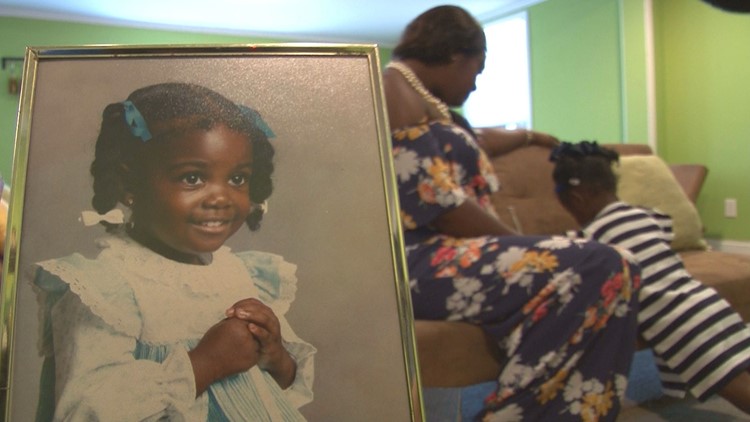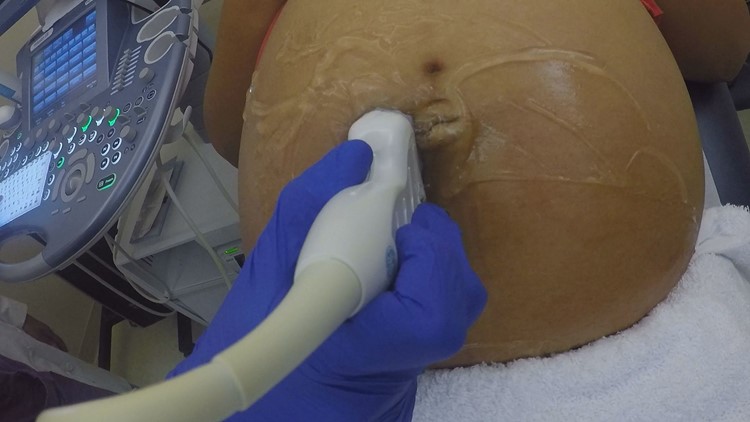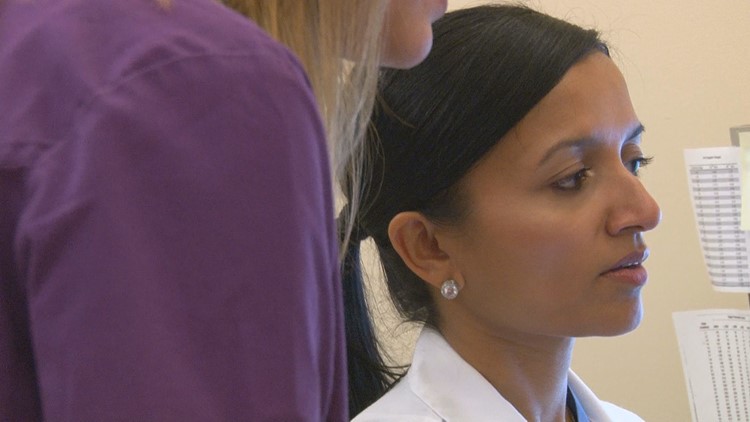Dying to give birth: That's what's happening in hospital rooms across America. Too many women are dying after childbirth. The Mothers Matter series hopes to address this issue and what is being done to stop it.
Giving birth can be an exciting, wonderful, and scary time in a woman's life; but in Georgia it can also be deadly.
In 2010, Amnesty International listed Georgia as the state with the highest maternal mortality rate in the country. The majority of those moms were African-American.
According to the state Department of Public Health, from 1999 until 2016, there were 755 maternal mortality deaths. 253 of moms were white and 413 moms were black.
Those numbers don't include the moms who had very close calls.
Tiffany Crockett gave birth to Callie three years ago and just days later Tiffany started to feel pain.
"I had a major headache, chest pain, sight was affected, kind of blurry and as the day progressed it got worse," she said.
On the first trip to the emergency room, she says she was diagnosed with a sinus infection.
When the medication didn't help, she came back to the ER. It was then that doctors found the real problem, postpartum pre-eclampsia.
It's a rare condition when a woman's blood pressure skyrockets after giving birth.
"They admitted me to ICU immediately and they told me that it's good I came because I was at stroke level at that point," Crockett said.
...she survived
Tiffany is one of the lucky moms... she survived.
"I'm just so happy I listened to my body because if I stayed home, it might not have been the same outcome," she said.
PHOTOS: Mothers Matter -- The Crockett Family
Doctor Champa Woodham isn't Tiffany's doctor, but she knows all about caring for babies and moms. She's the director of Internal fetal medicine at Navicent Health.
Doctor Woodham handles high risk pregnancies and she's also a member of the Georgia Maternal Mortality Review Committee.
It's a group formed in response to studies that show more African American pregnant women died in Georgia than any where else in the country.
"In 2013 it was discovered our black, non-Hispanic women had a four times higher rate of maternal mortality than our white non-Hispanic women," Woodham said.
What's killing new moms?
Doctor Woodham says different problems like cardiovascular complications, heart disease and hypertension. That's what Tiffany had.
Moms can also die from hemorrhaging. Another big problem, especially in Central Georgia, is access to care.
"Unfortunately a lot of labor and delivery units have closed in a lot of our under served areas, rural areas so those patients are having to drive several hours to even see a doctor," Woodham said.
The solution is not so black and white.
"No matter what the racial background of the patients is, what the education level is...that is actually how you should cater your teaching," Woodham said.
Because the lesson could be a matter of life and death.
"As doctors, we have to do a better job teaching our patients these things. What things they know, they have to look out for so they know how to identify it," Woodham said.
Tiffany may not have known about postpartum pre-eclampsia three years ago, but she did know something was wrong when she got home. Listening to her body just may have saved her life.
"I look at pictures of me holding her. I look at different things going on in her life. I just think how different her life would be if I were not here," she said.
There are two other organizations along with the Maternal Mortality Review Committee looking at ways to save mother's lives. They are working to get the information into doctor's offices so it falls into the hands of more pregnant women.














